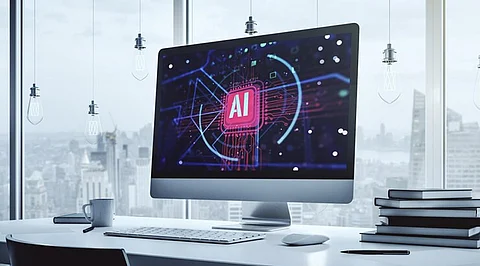

It’s fascinating to think how far modern computing has come- right from the early days of Microsoft Windows in 1985 to the full-blown AI integration that we’re seeing now. Over time, operating systems have evolved from being simple tools to perform basic tasks to becoming an integral part of our daily life. Windows 11, for example, now comes with features that are even effective in the healthcare sector and not just personal usage- click here to know more Windows 11 Pro features|AI in healthcare.
If you’re interested in learning about the nitty gritty of operating systems, you’re in for a treat because we’re diving deep with this one!
The first time personal computers became popular was in the 1980s when people needed something functional and easy to use. With Microsoft Windows, which was introduced in 1985, people felt like their prayers were answered. Unlike the computers of the previous generation, this OS had a graphical user interface (GUI). This meant that people no longer had to type in commands and could rely on their trusty mouse to click on icons.
Office use of computers was not normal before 1980, but now the trend of working on a computer was quickly catching on. On the later versions of Windows- like Windows 3.0 and Windows 95, which were released in 1990 and 1995 respectively, Microsoft introduced even more game-changing features like the Start menu, plug-and-play features and more to make the computers user-friendly.
But let’s not give Microsoft all the credit; Apple also played a big role in the evolution of Operating Systems over the years. With their first macOS introduced back in 1984 as ‘System 1’ with an incredible GUI, Apple paved the way forward for generations to come. We aren’t going into the whole Apple vs Windows rivalry here because people know enough about it already.
As the new millennium rolled in, so did the popularity of mobile phones. These nifty little devices were no longer for the men in suits walking around Wall Street. Innovation and affordability fueled the spread of mobile phones to the masses and by the late 2000s, Smartphones started to conquer the market. Apple found another rival here- Google, with its open-source Android operating system that was being used by innumerable phone manufacturers.
Apple decided to keep its iOS system exclusive and focused on improving security and seamless connectivity with other Apple devices. Both iOS and Android introduced their own app stores which allowed creators to create and sell their own apps, and buyers to buy them. These operating systems ushered in a new era of smart computing, making smartphones an indispensable part of our daily lives.
Technology was going to move online- it was inevitable, so operating systems had to adapt to keep up with the changing times. Windows 10, which was launched in 2015, made it super easy to sync all data across devices like PCs, tablets, and smartphones. Google Chrome OS came up with its new suite of cloud-based apps where your work is saved online by default instead of on your device. Tools like Google Docs, Google Sheets, Google Drive, Google Calendar, etc. come to mind.
Cloud-based systems did introduce a lot of benefits with automatic updates, on-the-go online apps, and remote access, but along with those came some concerns about security and privacy. Of course, this led to the developers focusing on improving the encryption and authentication systems. Cloud-based systems are still going strong today and it won’t likely change anytime soon.
Artificial Intelligence has become an integral part of operating systems today, and it only seems to get better if you include generative AI into the mix. AI is making systems smarter with features like voice assistants, personalized suggestions, advanced security, and better multitasking. Generative AI is especially changing operating systems by enabling smarter and more personalized user experiences like what you find in Windows 11.
In Windows 11, a generative AI tool like Microsoft Copilot can assist users by generating text, creating visuals from commands, and summarizing documents in a jiffy. Mobile operating systems, on the other hand, have been using AI for a while now with voice assistants like Siri and Google Assistant. They can now generate highly contextual responses and perform complex tasks based on user input.
It goes without saying that AI will continue to evolve, making our operating systems more intelligent. Future upgrades could introduce AI features that are leaps and bounds ahead of what we have now. It could include the ability to understand emotions, offer smarter assistance, and anticipate your needs with amazing accuracy. Here are some interesting developments to watch out for in 2025.
Also, technologies like quantum computing are supposed to bring big changes that will aim to solve complex problems that most modern-generation computers can’t. The future of Operating Systems undoubtedly looks bright and we’re all excited like you to see what comes next!
